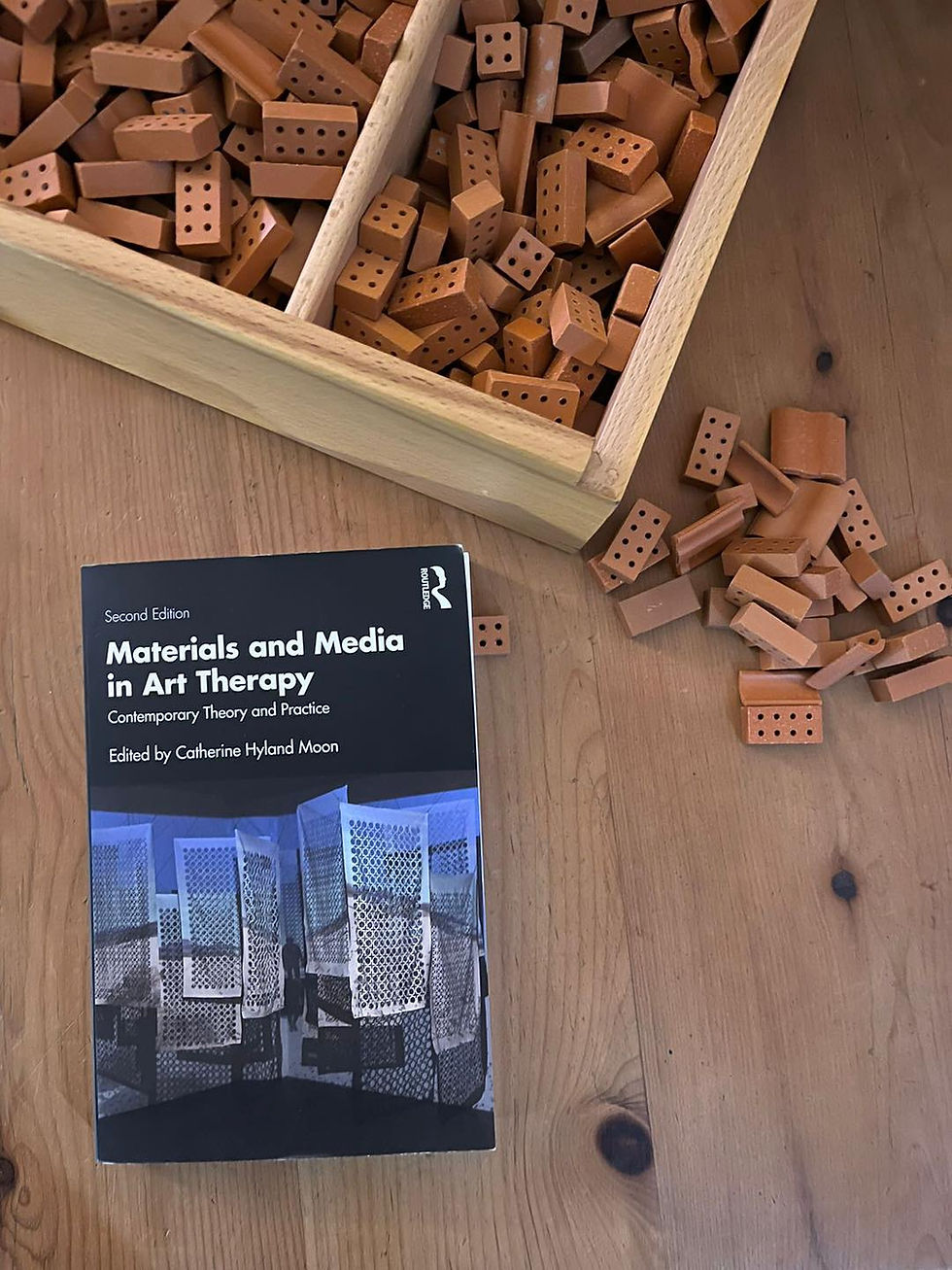TRACES
- Art Refuge

- Aug 14, 2024
- 3 min read
CALAIS, AUGUST 2024
Art Refuge is honoured to share a further piece of reflective prose written by Alex Holmes - long-term volunteer at Maria Skobtsova safe house in Calais - recently returned to the UK. As before, all names have been changed.
TRACES
Calais. The perennial soundscape of the Eritrean camp. The thunder of lorries on the autoroute. The drone of light planes overflying. Tents flapping and leaves rustling in the relentless Calais wind. The chatter of Tigrinya into phones. But today something different; the sound of plucked strings filtering through the willows. Mewael sits with his friends playing his krar*. It could be a street café scene anywhere. A cloth-covered table, a deck of cards, bottled water, two phones, a nonchalant hand clutching a lighter. The lyrics of the song, they’re a long story says Mawael. He retunes his instrument, and begins a new song. The ground around his feet, a spread of blackened nails and charcoal from some yestertime. Hints of the fireside, yes, but no traces of the human spark that was here before.
A short distance away, the once well-worn path snaking beside a line of scrubby trees is now a tangle of teasel and briars. Under the thick tree canopy, the detritus of the old camp site. A double mattress blackening with mould. An orange blanket, sodden clothes, bottle tops and crushed beer cans. Traces in the silence; the conversations now just a memory. Back then, a blue tarp sheltering six young Eritreans, smoke from the small fire drifting this way and that.
The talk was of army life back home. ‘If you are clever and get a degree, you can travel and work in another country. If you are not clever, it is the army. You will be stationed on the border, perhaps, and have to shoot at anyone trying to escape. The army makes you strong. When we train we have to carry water all day but we cannot drink till the end of the day and we are given permission. We only eat lentils; everybody has gastritis. Isaias our dictator says that we must work 48 hours in each 24 hours. I don’t feel good that I have gone from Eritrea. I have left my family behind to defend it from attack. My father fought for independence from Ethiopia. My mother was put in prison for 12 days after it was discovered I had left the country. My dream is the UK, but now I have no money so how will I get there?’
Words scratched into the concrete pillars of the ‘binto’, the bridge. Five years on, fading a little. Traces. The desire to leave a mark; a name perhaps, or an expletive. Here, once, was the night stop for a hundred Eritreans. Long caged off, long inaccessible. Day time then was spent in the ‘Green Hotel’, an acre of nearby woodland. In the ‘terrain de pétanque’, Sunday worship was led by the Eritrean Orthodox Deacon. After the prayers and the songs and the silence, food and fireside chat. Somewhere, the sound of a hammer driving in nails; two guys making a krar. Later there would be music.
Then the fence came, and the Green Hotel became inaccessible. For a while, the traces of Sunday worship remained, old candles, melted wax, a wooden cross. But come the million euro Chico Mendes playground, all traces vanished.
A new site for Sunday worship, the no entry sign beside the football stadium. Two crosses strapped to the sign, icons of Jesus and Mary. After trawling through the nearby stadium camp, the armed police would stand and observe the gathering of worshippers, take photos, then drive away. All part of the ritual, the menacing. Gone now the icons but the crosses remain, weathered and unnoticed. Gone, too, the new cross erected in BMX camp. What of the traces of the life force all around it, the prayers, the songs and the dreams of the night? Nothing but memories and the ubiquitous carpet of blackened nails and charcoal, and a jettison of plastic water flagons.
And what of the traces of the life force that was little Mohammed, eleven months old, a brief visitor to this dangerous borderland? Mohammed, one of July 2024’s nine victims*, one of at least 400 border deaths in 25 years. His body, eyes still open, soft curly hair combed neatly, lying in a tiny white coffin in the hospital morgue. He’s buried now in the Cimetière Nord. Today’s traces, heaped soil, flowers and photos; traces already fading.
*A traditional Eritrean 6 stringed instrument.





















Comments